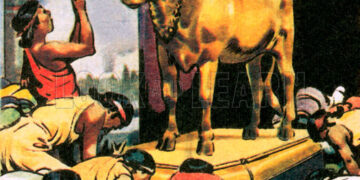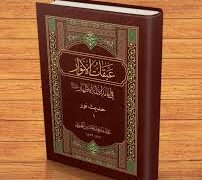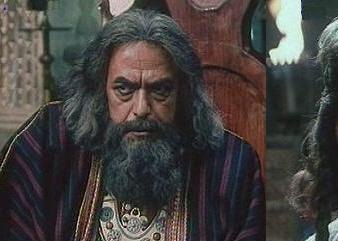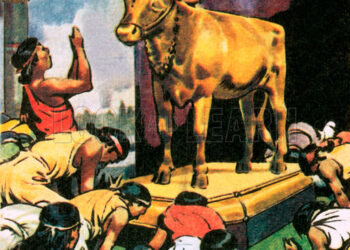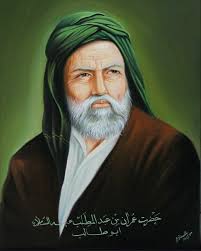The Special Agent and Practical Embodiment of Saqifah
Bid’ah (religious innovation) is a deviation presented in the name of religion, and Mu’awiyah, as an innovator, made every effort to destroy God’s religion by creating numerous bid’ahs within it.
nabaolazim, Hamed Sarem;
The Holy Qur’an warns against two dangerous groups: the hypocrites and those in whose hearts is a disease. These individuals are the most important enemies of Islam, and even the most powerful external enemies cannot strike Islam the way these people—who outwardly appear Islamic—can; because they strike at the very body of Islam from within.
The internal enemies of Islam adopted various tactics to dismantle and destroy Islam. Since they could not confront the foundation of the Prophet’s religion through military or physical means, they resorted to soft warfare. Their most important tactic in this soft warfare was the introduction of numerous bid’ahs into the religion
Bid’ah: One of the Tactics of the Enemies for the Destruction of Religion
Bid’ah is a deviation from religion that is presented in the name of religion, and it is an evil that the innovator portrays as good. If the innovators succeed in making their bid’ahs accepted, Islamic values in society will be destroyed and replaced with anti-values. In such a case, a society will take shape that carries the name of Islam and is filled with teachings contrary to Islam—bearing the title of Islam, yet void of its lofty teachings.
This is exactly what Mu’awiyah did to Islam. He exerted great effort to promote and establish numerous bid’ahs in religion, in order to destroy it. Today as well, though the name of Islam remains, among the followers of Umayyad Islam there is no trace of the exalted teachings of Islam. Actions such as the killing of Muslims, suicide operations aimed at murdering large numbers of innocent people, and similar acts are all the results of Mu’awiyah’s bid’ahs and the legacy of Umayyad Islam.
Mu’awiyah and the Virtue of Writing Down the Revelation!
In order to present this innovator attractively to the people—so that in every era people would embrace his innovations wholeheartedly and accept his falsehood—they fabricated many virtues for him. Among them is the claim that he was a scribe of revelation, a title which suggests the following idea: “One who writes down revelation must be more familiar with revelation.” With this simple fallacy, many were ensnared by Umayyad Islam.
Some have written: “There is no disagreement about the fact that Mu’awiyah was one of the scribes of revelation, and all historians have reported this.” However, this is one of the great lies of history, because he never wrote down any revelation. He only accepted Islam by the sword in the year Mecca was conquered. After accepting Islam, he remained in Mecca and did not migrate to Medina, nor was he in the Prophet’s company. In that case, which revelation did he ever write?!
Acknowledgment by Sunni Scholars That Mu’awiyah Was Not a Scribe of Revelation
Many Sunni authors have explicitly admitted that Mu’awiyah was not a scribe of revelation. Among them is Abdulrahim Khatib, a contemporary Sunni writer from Bandar Abbas, who says:
“Contrary to what is commonly heard, Mu’awiyah was not among the scribes of revelation. Rather, at times he wrote ordinary letters for the Messenger of God (peace be upon him and his family), and this became the source of the misunderstanding that he was also one of the scribes of revelation.” (1)
Al-Dhahabi likewise narrates the same from Abdullah ibn Umar. (2) Ibn Abd Rabbih of Andalusia also clearly states that Mu’awiyah and Khalid ibn Sa’id used to write ordinary letters. (3) Al-Dinawari attributes the Prophet’s use of Mu’awiyah and others for writing ordinary letters to the shortage of literate individuals at the time. (4)
Abu Reyyah, a well-known Sunni scholar from Egypt, writes:
“A group wanted to flatter Mu’awiyah and gain favor with him, so they called him a scribe of revelation. They even claimed that he wrote Ayat al-Kursi with a golden pen gifted to him by Gabriel from above the Throne.
This story, aside from being false, is rejected by both reason and reality. How could the Prophet (peace be upon him and his family) have trusted Mu’awiyah and appointed him as a scribe of the Qur’an, while he and his parents only accepted Islam by force of arms, and Islam never truly penetrated their hearts?
From a transmitted (narrative) perspective as well, this claim is not substantiated. If those who made this claim truly believed it, they should at least produce a single verse which Mu’awiyah is known to have written—naming the time and place in which he wrote down a Qur’anic revelation in the presence of the Prophet. Especially since, after the conquest of Mecca, he remained in Mecca and did not reside in Medina.
Of course, it is not far-fetched that he may have written some letters for the Prophet—letters with no connection to revelation. But to say that he wrote any part of the Qur’an, and thus label him as a “scribe of revelation”—this is impossible. Al-Mada’ini says: the scribe of revelation was Zayd ibn Thabit.” (5)
Why Do Some Present Mu’awiyah as a Scribe of Revelation?
In any case, this so-called virtue attributed to this great innovator of history is nothing but a lie. The sole purpose behind this major fabrication is to make his innovations acceptable among Muslim communities and to promote the harsh Umayyad version of Islam—so that even today, some may attack the mourners of Imam Husayn (peace be upon him), citing the example of Mu’awiyah, and even martyr those who commemorate the grandson of the Prophet and the master of the youth of Paradise.
Beyond the falsehood of Mu’awiyah being a scribe of revelation, it must also be stated that merely writing down revelation grants no immunity or spiritual merit. Being a scribe of revelation is no proof of the truthfulness or righteousness of the individual. Some scribes, such as Abdullah ibn Abi Sarh, actually apostatized. (6)
Ibn Kathir says: “He was a scribe of the Prophet; Satan led him astray and he joined the polytheists.” (7)
In fact, Mu’awiyah himself, whether in objection or advice, warns Zayd ibn Thabit—who was a scribe of revelation—not to become arrogant due to his position. (8)
Considering that all the virtues narrated about Mu’awiyah are sheer fabrications—especially the claim that he was a scribe of revelation, which followers of Umayyad Islam strongly insist upon—it must be concluded that Mu’awiyah was a man without a clear lineage or any genuine background or virtue in Islam. He was a figure who devoted his entire effort to opposing Islam, and among his most dangerous and enduring deeds was the widespread promotion of religious innovations—bid’ahs—whose consequences remain to this day.
Mu’awiyah’s Consumption of Alcohol
The best evidence supporting this claim is the hadith reported by Ahmad ibn Hanbal and al-Dhahabi, in which Mu’awiyah is seen sitting at a table where wine was served and consuming it himself. Here are several testimonies regarding the “piety” of Mu’awiyah:
Abdullah ibn Buraidah says: My father and I went to visit Mu’awiyah. He ordered food to be brought, and we ate. Then he ordered wine to be served, and Mu’awiyah drank from it. He offered it to my father as well. My father replied: “Since the day the Messenger of God (peace be upon him and his family) forbade it, I have not tasted it.” (9)
Ibn Asakir narrates: Abdur-Rahman ibn Sahl al-Sa’idi had been sent to the Levant during the caliphate of Uthman to participate in battle. Suddenly, a caravan of camels carrying wine passed by, en route to Mu’awiyah. He immediately took a knife from his pocket and tore open all the wine skins. When news reached Mu’awiyah, he said: “Leave him alone; he is old and has lost his senses.”
Abdur-Rahman responded: “No, that is not true. The enemy of God—Mu’awiyah—is lying. Rather, the Messenger of God (peace be upon him and his family) forbade us from letting wine enter our stomachs.” (10)
Mu’awiyah’s Usury Practices
One of the clear signs of Mu’awiyah’s religious innovations is his involvement in usury, evidenced by his sale of silver vessels in exchange for silver of a greater weight. When he was objected to and told that such a transaction is usurious (riba), he responded: “We were beside the Messenger of God (peace be upon him and his family), and we never heard such a thing [being forbidden].”
Ubadah ibn al-Samit said: “We narrate what we heard from the Prophet (peace be upon him), and we will rub Mu’awiyah’s nose in the dust.” (11)
Abu al-Darda said: “I don’t know what to do with Mu’awiyah—when I narrate the words of the Messenger of God to him, he responds with his own opinion.” (12)
This statement attributed to Abu al-Darda reflects a profound truth: the one who claimed to be the caliph and successor of the Prophet (peace be upon him and his family) did not submit to the Prophet’s commands and instead placed his own opinion on par with the Prophet’s authority in religious and legal matters.
The Prophet is the messenger of God and the intermediary between Heaven and Earth. His status is such that he is empowered to legislate within the religion. Therefore, what isconsidered authentic religion must ultimately be traced back to the Prophet’s Sunnah. Whenever an individual or group deviates from the Prophet’s Sunnah, they inevitably deviate from the Qur’an and Islam itself—even if they call themselves Muslims or claim to follow the Qur’an
Mu’awiyah’s Thirst for Innovation and Spreading Innovations in the Islamic Community
This historical report illustrates Mu’awiyah’s thirst for creating and spreading innovations (bid’ah) within the Islamic community. A careful examination reveals that he was not a follower of the religion; rather, he made the religion follow him. Whenever his opinion on a matter conflicted with the clear directives of the Prophet (peace be upon him), he acted according to his own view, issuing decrees, making opposition to the Prophet an inseparable part of the religion of Islam. This reality is still evident today among those who follow the Umayyad legacy.
Mu’awiyah, with complete audacity, issued rulings that contradicted the well-known and definitive rulings of the Prophet, and this was nothing more than his thirst to combat the religion brought by the Prophet. Mu’awiyah openly declared that he, too, legislated just as the Prophet did.
Mu’awiyah’s Judgment vs. the Judgment of the Messenger of God (peace be upon him)
When the dispute arose between Abdul-Rahman ibn Khalid and Nasr ibn al-Hajjaj over the child that each claimed to be his, Mu’awiyah, after hearing the matter, handed the child over to Abdul-Rahman and ruled in his favor based on the Prophet’s (peace be upon him) instructions. In response to Nasr ibn al-Hajjaj’s objection, who asked why Mu’awiyah did not issue a similar ruling in the case of Ziyad ibn Abi, Mu’awiyah said: “That was the judgment of Mu’awiyah, and this is the judgment of the Messenger of God (peace be upon him).” (13)
Mu’awiyah interfered in almost all religious matters, and his effort was directed towards erasing the prophetic legacy from the religion of the Messenger of God. According to the report from al-Mughira, he even disliked the name of the Prophet being mentioned in the muezzin’s call to prayer during the times of the prayer and sought to erase it. He also attempted to introduce innovations (bid’ah) even in the rites of pilgrimage (Hajj), which are acts of worship.
The Prohibition of Loudly Reciting the Talbiyah on the Day of Arafah
One of the clear examples of Mu’awiyah’s determination to destroy the Sunnah of the Messenger of God (peace be upon him) and prevent its practice was his prohibition of loudly reciting the Talbiyah on the Day of Arafah. Al-Nasa’i and al-Bayhaqi narrate from Sa’id ibn Jubayr, who reported: “On the Day of Arafah, Ibn Abbas said to Sa’id: ‘Why do I not hear the sound of the Talbiyah from the pilgrims today?’ Sa’id replied: ‘They are afraid of Mu’awiyah.’
Ibn Abbas then came out of his tent and loudly shouted: ‘Labbayk Allahumma Labbayk, and despite the nose of Mu’awiyah, Allahumma la’nahum, for they abandoned the Sunnah out of hatred for Ali (peace be upon him).’”
A commentary on this passage explains: “Imam Ali (peace be upon him) was steadfast in following the Sunnah of the Messenger of God (peace be upon him), while the Umayyads abandoned the Sunnah of the Prophet (peace be upon him) to oppose Ali (peace be upon him).” (14)
Ibn Abbas, courageously standing against Mu’awiyah’s innovation, unveils the hidden truth behind Mu’awiyah’s actions. The issue of loudly or quietly reciting the Talbiyah did not fundamentally weaken or strengthen his government, but why did he command that it be recited quietly?
The answer to this question is provided by Ibn Abbas, who says: “Mu’awiyah and the Umayyads, due to their hatred and enmity towards Ali (peace be upon him), abandoned the Sunnah.” He even opposed the loud recitation of the Talbiyah and sought to change it, for erasing the Sunnah is an act of hostility against Ali (peace be upon him), because only Ali ibn Abi Talib (peace be upon him) was truly committed to the Muhammadan Shari’ah. If Mu’awiyah could push Ali (peace be upon him) aside and oppose his actions, he could indeed stand in opposition to the Messenger of God and attempt to destroy Islam.
Mu’awiyah as the Practical Example of the People of Saqifah
Truly, Mu’awiyah is the practical embodiment of the people of Saqifah. If the theory of the separation of the caliphate of the Messenger of God (peace be upon him) from the Qur’an was introduced in Saqifah, and if, through the swords of the Banu Aslam, Saqifah succeeded in reducing the authority of the divinely appointed leader to the level of choosing a few bullies, then, under Mu’awiyah’s rule, this theory became a reality.
Mu’awiyah was the fruit of the club-like caliphate, and the mindset that came to life through the swords of the Banu Aslam found its full manifestation in his rule. Every action that the people of Saqifah had intended but for some reason had been unable to carry out was completed by Mu’awiyah. Truly, those who allowed Mu’awiyah to take control of Syria during his reign were the best choice to continue the path of Saqifah and to execute their conspiracies.
In short, Mu’awiyah was not unique in his crimes and innovations; rather, he was the continuation of the Saqifah conspiracy. Mu’awiyah was an ally of Saqifah, and thus, all his heinous actions must be viewed as a special mandate from the Saqifah council and the companions of the Sahifah. In other words, Mu’awiyah was the special envoy of Saqifah and the companions of the Sahifah, and he was simply carrying out his mission.
Therefore, we must examine who placed him on the throne of power to make this clearer. Undoubtedly, it was for this reason that the only caliph who reached the caliphate in appearance but was an outspoken opponent of Saqifah eventually waged a great war with this opponent of Saqifah. The war lasted several months and took place in the Battle of Siffin.
Mu’awiyah Defended the Achievements of Saqifah in Siffin
Although the outward appearance of the Battle of Siffin and the absurd dispute over arbitration, which was raised by the naïve, was ostensibly about the caliphate, in reality, Siffin was the battlefield between the supporters of Saqifah and its opponents. Mu’awiyah, with all his might, defended the achievements of Saqifah in Siffin, and after him, his accursed son Yazid ignited this conflict further in Karbala. It was a war based on the theory of Saqifah, where on one side stood the Yazidis, who pressed the principles of Saqifah, and on the other side were the companions of Aba Abdullah, who resisted based on the will of the Messenger of God (peace be upon him) regarding the leadership of Ali (peace be upon him) and his innocent descendants.
Although the first Saqifah was the origin of all misfortunes, innovations, and deviations until the uprising of the Imam of the Ahl al-Bayt, it must be said that the Saqifah reached a turning point during Mu’awiyah’s time. He succeeded in establishing the Umayyad Islam, which was based on the innovations that originated from Saqifah, and he laid the foundation for it, leading the Islamic world to experience a rigid, conservative, and bloodthirsty version of Islam until today.
Footnotes:
- Shaykhan, p. 159.
- Siyar A’lam al-Nubala, Vol. 3, p. 132.
- Al-‘Aqd al-Farid, Vol. 4, p. 160.
- Al-Ma‘arif, p. 30.
- Abu Hurayrah, p. 204.
- Asad al-Ghabah, Vol. 3, p. 173; Tareekh Khalifah, p. 105.
- Al-Bidayah wa al-Nihayah, Vol. 5, p. 304.
- Rabi‘ al-Abrar, Vol. 1, p. 689.
- Musnad Ahmad, Vol. 5, p. 347; Vol. 6, p. 476; Siyar A’lam al-Nubala, Vol. 5, p. 52.
- Tarikh Madinat Dimashq, Vol. 34, p. 419; Asad al-Ghabah, Vol. 3, p. 458.
- Sahih Muslim, Vol. 2, p. 35; Al-Sunan al-Kubra, Vol. 5, p. 276; Al-Musannaf, Vol. 8, p. 34.
- Sharh Nahj al-Balaghah, Ibn Abi al-Hadid, Vol. 20, p. 27.
- Al-‘Aqd al-Farid, Vol. 6, p. 134.
- Sunan al-Nasa’i, Vol. 5, p. 252.


